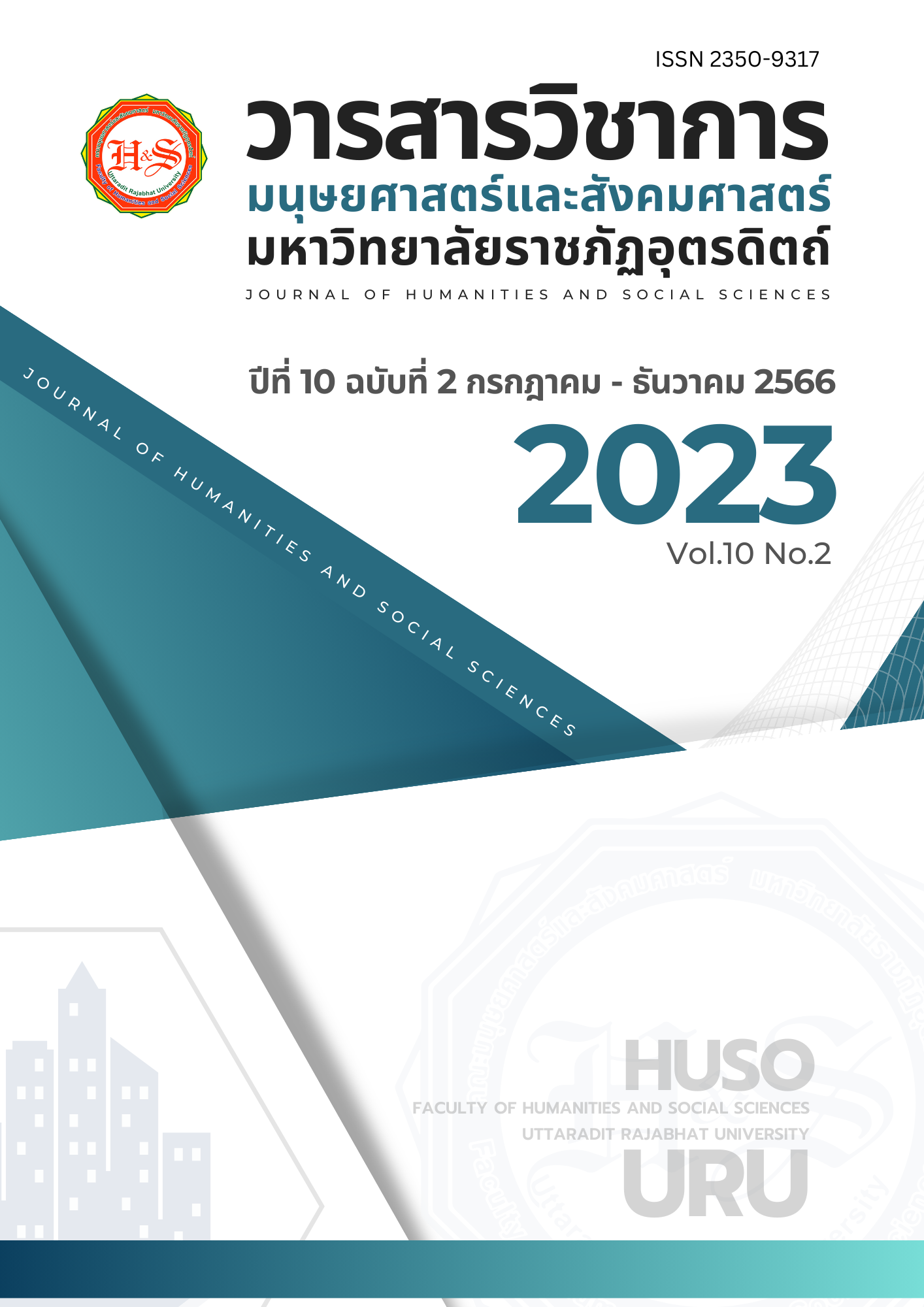Buddhist principles for development in the 21st century
Keywords:
Buddhist principles, development, 21st centuryAbstract
This article has studied and compiled the main Buddhist knowledge for the 21st century. That is changing rapidly. Change in thinking, Growth Mindset that can adapt in every situation. To learn from doing Rather than listening or memorizing, it's called Active Learning to develop learning potential in your own way. Self-directed learning that suits you Able to set better sequence, method, time and goals. Buddhism says that personal development, human development, and work development are development of change in a good direction, which corresponds to the word "bhavana".
- Physical development: Training the body to be strong and not harm others. Treat those thingsin a way that is beneficial and does not cause harm.
- Moral development, behavioral training that expresses itself physically and verbally without harassing or causing distress or damage to others
- Emotional development: Mental training develops people to have a complete mind consisting of quality, ability, and good mental health.
- Wisdom development: training people to think, consider, diagnose, and solve problems with wisdom, understanding reason, looking at everything according to causes and factors, without bias, without the influence of defilements. By being aware of the normal nature of the world and lif
References
ธีรัญญ์ ไพโรจน์อังสุธร.(2566). คุณค่าของสติและสมาธิในการทำงาน: THE VALUE OF MEDITATION AND
MINDFULNESS. [ออนไลน์]. ได้จาก: https://www.runwisdom.com/2021/04/the-value-of-meditation-and-mindfulness/[สืบค้นเมื่อวันที่ 14 กันยายน 2566]
พระพรหมคุณาภรณ์(ป. อ. ปยุตฺโต),(2546). ธรรมนูญชีวิต. : พุทธจริยธรรมเพื่อชีวิตที่ดี. พิมพ์ครั้งที่ 57. กรุงเทพฯ : มหาจุฬาลงกรณราชวิทยาลัย.
พระเทพเวที(ป.อ.ปยุตฺโต), (2536). พจนานุกรมพุทธศาสตร์ ฉบับประมวลศัพท์. (พิมพ์ครั้งที่ 7). กรุงเทพฯ: มหาจุฬาลงกรณราชวิทยาลัย.
พระมหาสมชาย ฐานวุฑฺโฒ (2566, 13กันยายน). พรหมวิหารธรรมนำความสำเร็จ. สืบค้นจาก.https://kalyanamitra.org/th/article_detail.php?i=9672
พระอธิการกิตติ ยุตฺติธโร. (2559). การประยุกต์ศีล 5 เพื่อสร้างความมั่นคงในชีวิตของชุมชนสา วะถี. วิทยานิพนธ์พุทธศาสตรดุษฎีบัณฑิต. มหาวิทยาลัยมหา จุฬาลงกรณราชวิทยาลัย
มหาจุฬาลงกรณราชวิทยาลัย. (2539). พระไตรปิฎกฉบับภาษาไทย .ฉบับมหาจุฬาลงกรณราชวิทยาลัย. กรุงเทพฯ : มหาจุฬาลงกรณราชวิทยาลัย.
มูลนิธิยุวพัฒน์ (2556) การเรียนรู้ตลอดชีวิต (Lifelong Learning) . [Onlinde].แหล่งที่มา:
รัตนะ ปัญญาภา(2553) เอกสารประกอบการสอนรายวิชาพุทธธรรม.คณะมนุษยศาสตร์และสังคมศาสตร์. อุบลราชธานี: มหาวิทยาลัยราชภัฏอุบลราชธานี
สมเด็จพระ. มหาสมณเจ้า กรมพระยาวชิรญาณวโรรส, (2540). นวโกวาท (ฉบับประชาชน).(พิมพ์ครั้งที่12). กรุงเทพฯ : มหามกุฏราชวิทยาลัย.
สำนักบริหารงานการมัธยมศึกษาตอนปลาย, (2566). แนวทางการจัดการเรียนรู้ในศตวรรษที่ 21 21st century skills [Onlinde]. ได้จาก: https://webs.rmutl.ac.th/ assets/upload/files/2016/09/20160908101755_51855 [สืบค้นเมื่อวันที่ 17 กรกฏาคม 2566]
Wisdom Academy. (2566). กล่าวถึงแนวทางการพัฒนาตนเองให้ประสบความสำเร็จในชีวิต.[ออนไลน์].ได้จาก: https://thewisdom.co/content/improve-personal-development-skills/#google_vignette [สืบค้นเมื่อวันที่ 14 กันยายน 2566]
Downloads
Published
How to Cite
Issue
Section
License
Copyright (c) 2023 Journal of Humanities and Social Sciences Uttaradit Rajabhat University

This work is licensed under a Creative Commons Attribution-NonCommercial-NoDerivatives 4.0 International License.
บทความเป็นลิขสิทธิของคณะมส. มรภ อต.



